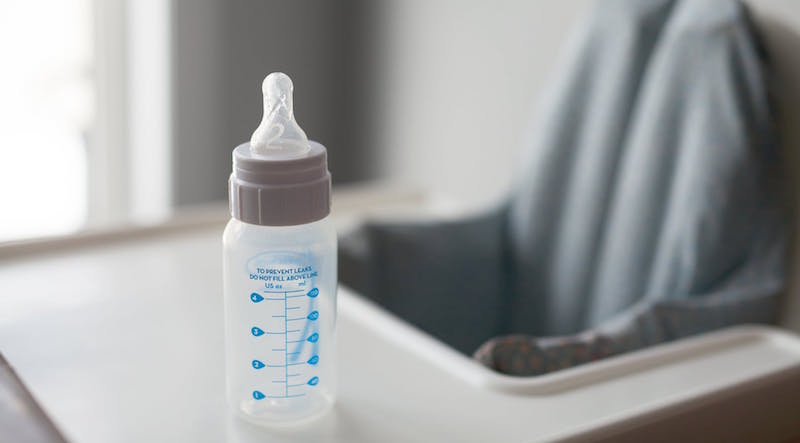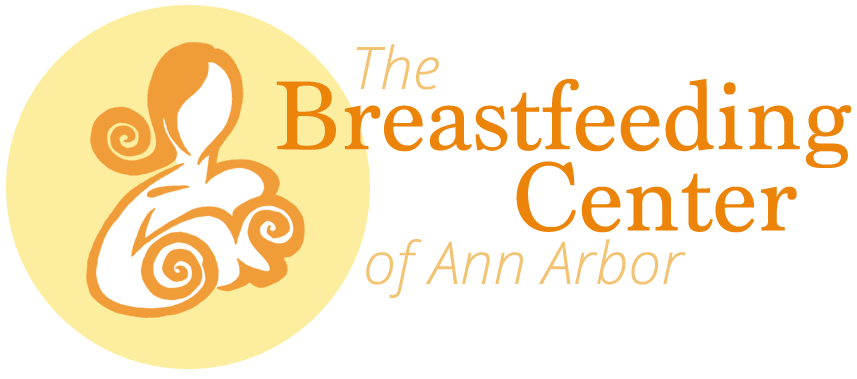Cost of Formula Feeding
What is the cost of formula feeding?  If you are struggling with milk supply please get help right away. We can help at The Breastfeeding Center of Ann Arbor where Barbara D. Robertson, MA, IBCLC can offer her expert suggestions in a private consultation. Or go to Find a Lactation Consultant to find an IBCLC near you.
If you are struggling with milk supply please get help right away. We can help at The Breastfeeding Center of Ann Arbor where Barbara D. Robertson, MA, IBCLC can offer her expert suggestions in a private consultation. Or go to Find a Lactation Consultant to find an IBCLC near you.
As much as we are not fans of artificial baby milk, ie formula, it was created to help keep babies alive when breastmilk was not available. The first rule of lactation is feed the baby. The second rule is protect the mother’s breastmilk supply. If we do not have breastmilk available, then we use formula if it is medically necessary. The issue is that most of the time, it is not medically necessary.
So…
How much is formula feeding costing us???
Need to know more?
This is not about guilt, it is about health!
And what about formula recalls?
There are many costs to formula feeding. See formula cost calculator below!!! There are health costs, apparently 13 billion, yes billion, a year. And don’t let people say, “Just one bottle won’t hurt.” They are wrong!
There are also emotional costs. Breastfeeding your baby will give you a closeness to your child that I am not sure any other feeding method provides. Just the oxytocin releases alone for mother and baby make it worthwhile.
There are environmental costs. To produce the ingredients, to produce the product, to get rid of the trash.
Then there are the concrete, in your face, cash today costs. Once a baby ends up at one or two months of age, they consume on a daily basis about 30 oz of either breastmilk, (Ding, ding, ding, free!) or formula.
Let’s add that up. Formula costs about .11 cents per oz on average. If you are worried about the nutritive benefits your child is not receiving due to formula feeding, you might reach for the more expensive cans that have substances added to “enhance” your baby’s IQ, physical coordination, digestion, etc…but these have not been proven to actually do the things they say they will. You will most likely grab the can that matches the one you received at the hospital. (This has been shown by research over and over. By the hospital where you birthed giving you that can of formula, they are silently endorsing that product, you trust your hospital, so you buy what they endorsed. Formula companies GIVE that hospital their formula cans for free because it is by far the most cost-effective advertising they can do. Formula companies woo hospitals with fancy dinners, trips, education money, to vie for a contract.)
Formula Cost Calculator
So, let’s see what this choice is going to cost your family out of pocket. Disclaimer: This is not supposed to be a guide to feeding babies! Please refer to your health care provider for how much YOUR baby should eat in 24 hours!!! These are just general guideline so you can get the idea of cost. These numbers are based upon a formula calculator from a major chain store that has it own formula brand.
First month:
Starts from anywhere from 15oz or so a day and moves up to about 30 oz a day. Although, many parents overfeed their babies, so these numbers are very conservative. On the website we used to help figure costs, they used 6 oz bottles as their norm. That is too much at a time for most young babies. The average price per oz of formula was about .11 cents per oz. If you buy a name brand, it is closer to .14 cents per oz, and a generic formula seems to range from .07 cents per oz to about .11 per oz.
30 days X15oz (very low end) 450 oz = $49.50 for the first month
30 days X 30 oz (high end) 900 oz = $99.00 for the first month
Cost for first 1st month: Between $49.50 and $99.00
Next 11 months: $1089.00
330 days X 30 oz Equals 9900 oz X .11 cents per oz
Total for one year: Between $1,138.5 and $1,188.00
As stated previously, these numbers are most likely low. Most people buy the expensive formula they were introduced to from their hospital and also, parents tend to overfeed their formula fed babies.
This is not taking into account: Your baby bottles, time for preparing formula and sterilizing bottles (a must!), sterilized baby water (strongly recommended by formula companies and a good idea, especially when babies are tiny), and that many in the first three months, the AAP would really like you to use the sterile, pre-made formula. Finally, formula recalls happen every year. This is because babies are getting sick from the formula itself. It can have bacteria if it is not sterile, and none of the powders are, and too much of this or too much of that, maybe not enough of this. Yikes. Food for thought.
So, save money, health, emotional well being, and the earth. Invest in your baby’s future. If you are having breastfeeding problems, spend money on a board certified lactation visit.
We will all be glad you did!
